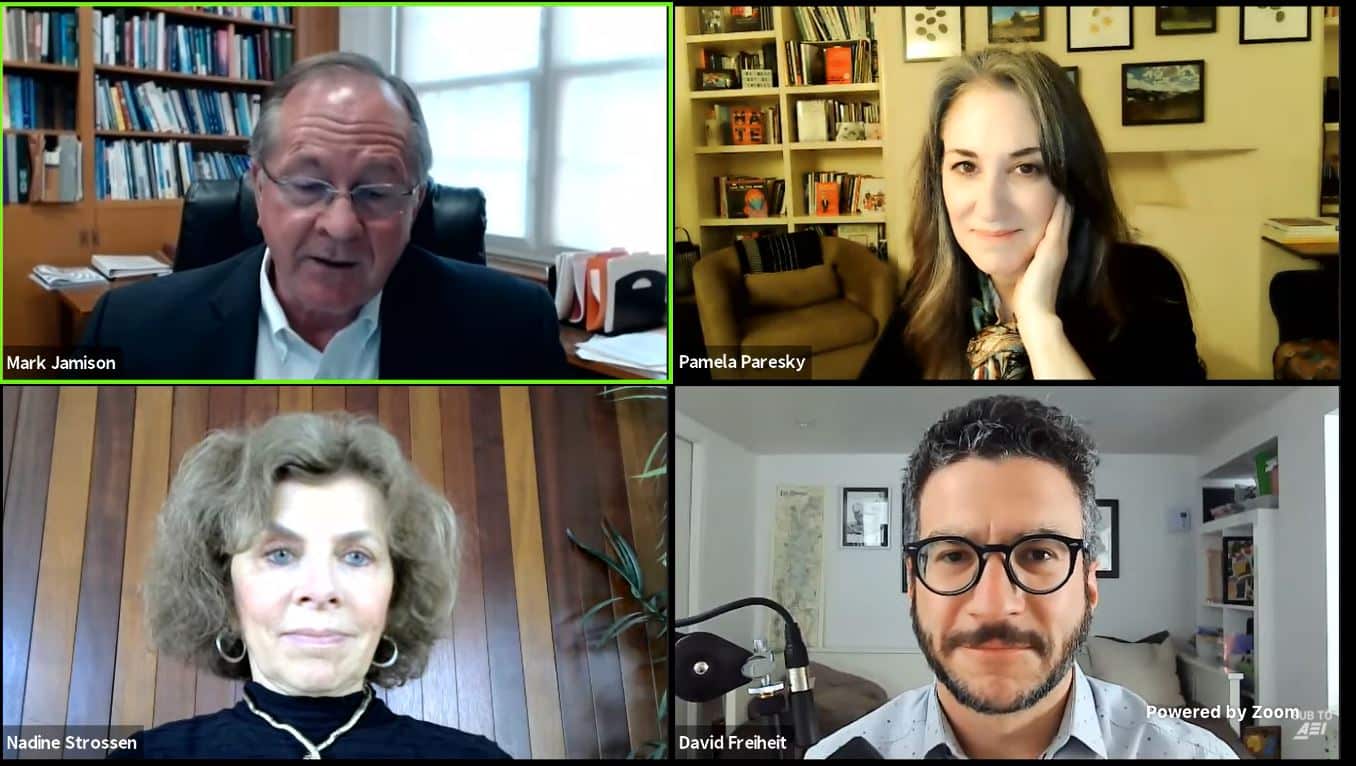Event Looks at Free Expression in the Digital Age

David Freiheit began his presentation at the American Enterprise Institute event on the values and consequences of free expression in the digital age by pointing to the response of Sen. Elizabeth Warren, D-Mass., to Amazon’s “snotty tweets.”
Warren has repeatedly vowed to break up the Big Tech giants – online platforms like Amazon, Facebook, Alphabet’s Google and Apple. The event came on the heels of last week’s congressional hearing where the CEOs of all but Apple were grilled by two House subcommittees on whether or not they can, or even should, regulate their own content.
Warren was responding to a series of tweets by Amazon criticizing her for saying the online platform takes advantage of “loopholes” in the tax code. Her threat reiterated her breakup goal, but made mention that it was “so [Amazon should not be] powerful enough to heckle senators with snotty tweets.”
The bipartisan line during that hearing was that either the platforms regulate what Congress considers “dangerous speech” or Congress will do it for them, said Nadine Strossen, professor at New York Law School.
Strossen said there is a “real basis of fear” that the platforms may be under the government’s whims, pointing to last week’s hearing, as these “demands were initially quite veiled, but they are getting more and more explicit.” Freiheit mentioned that censorship could lead to “massive distrust” of government, institutions and social media platforms.
The social media platforms have been trying to incorporate their own restrictions while Congress reckons with deciding whether or not these giants should be considered content publishers. The latter would remove them from the liability shield of Section 230 of the Communications Decency Act. Section 230 provides online platforms immunity from third-party content published on their site. Strossen said that this protection should not give them immunity for current speech restrictions, including the “inherently subjective, vague concept” of “hate speech.”
Offensive speech can go from “the objective to the subjective to the politically-motivated,” echoed Freiheit, noting the latter can be “disguised as hate speech.” He pointed to the inability of posting anything related to coronavirus on YouTube anymore, despite the intent or facts of the post. And this fine line is “how you go from a free society to a tyrannical one,” he asserted.
Just last week, Twitter CEO Jack Dorsey had cautioned over-regulation could lead to a society that could not question the government.
Nevertheless, the responsibility does not rest solely upon the shoulders of government and big tech, said Pamela Paresky, visiting senior research associate at the University of Chicago. As a society, individuals need to become “trustworthy partners” by doing their own individual fact checks before sharing information.
She suggests a “momentary pause,” pointing to a plug-in asking the user if they would like to post something that could offend someone or Twitter prompting them to read an article before posting it.
“Our brains are not used to this kind of very fast-paced, instantaneous kind of communication that goes viral,” she explained. We can say something that has not been checked, but it does not have a lasting effect. Online, she said, “it has a life of its own.”
If we do not check ourselves first, she said, “we are all part of disseminating … that misinformation.”























